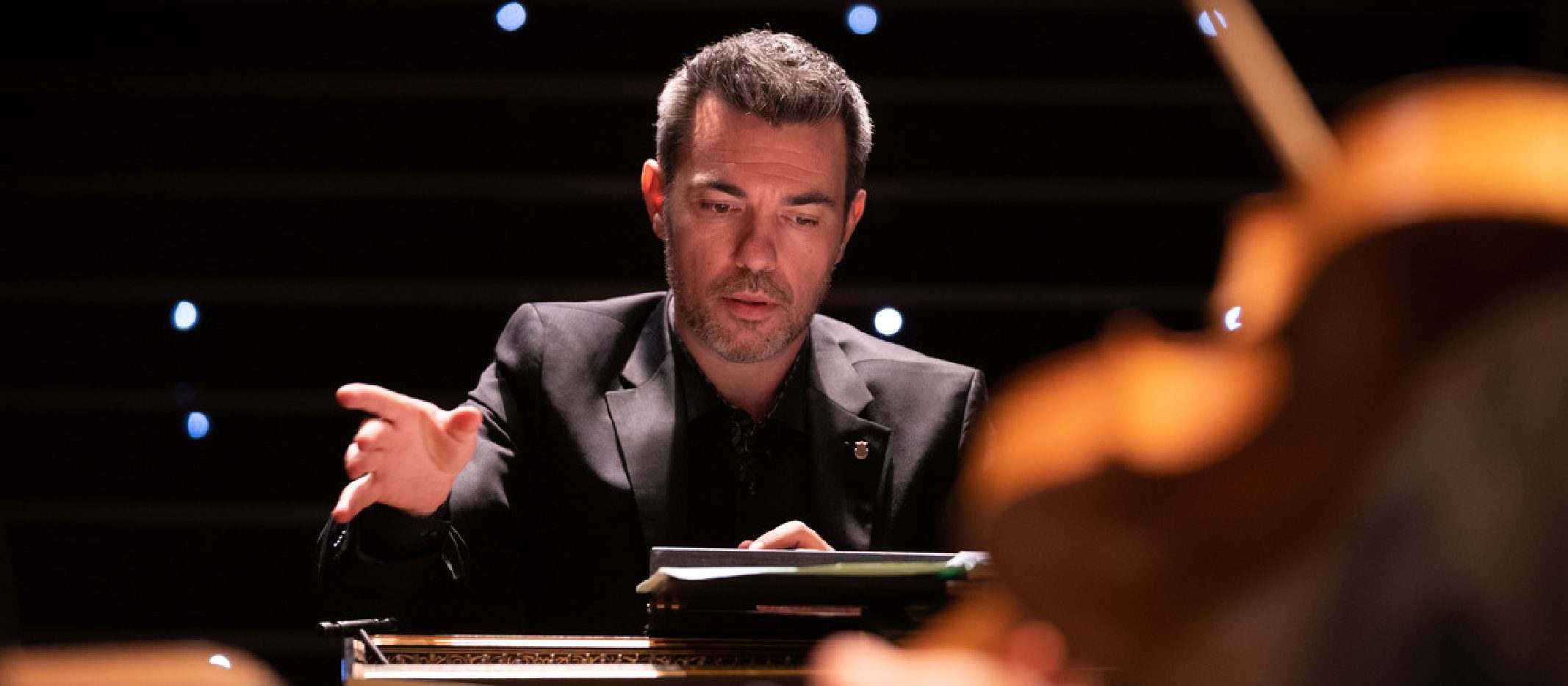The Auditorio de Tenerife presents ‘Circa 1721’ a Chamber Music Cycle with works of Bach, Händel and Vivaldi; a concert offered by the Baroque Orchestra of Tenerife.
The 300th anniversary of J. S. Bach’s final autographed copies of Concerts avec plusieurs instruments is celebrated this year. These concerts were known as The Brandenburg Concertos and were dedicated to Christian Ludwig, Marquis of Brandenburg. For this reason, the Baroque Orchestra of Tenerife wants to pay a new tribute to Bach and his contemporaries, Händel and Vivaldi, with a chamber music selection of works that have accompanied us since 1721.
The first nine minutes of the concert will be devoted to Vivaldi, including his Concerto No. 7, in D minor, another ingenious composition like his Opus 8, Il cimento dell’armonia e dell’inventione. The Vivaldi selection closes with Il Piacere, La Tempesta di mare and Per Pisendel, pieces that he composed and published around 1723. These are probably the most evocative pieces of the Venetian’s after Le Quattro Stagioni.
The concert continues with pieces of Händel, the most London-like composer who directed the Royal Academy of Music between 1720-1728. During this period he was able to create fourteen of his best-known operas. Moreover, thanks to his financial peace of mind and musical resources, he also devoted himself to the kind of sonic experiments, almost melodic and harmonic labs: his Overtures. The twelve minutes comprise five movements between binary and ternary beats, with elegant – almost charming – dances revolving around F major, which is associated with pastoral music. His music evokes the musical fantasy of the Thames, with phlegmatic and cosmopolitan overtones. It is also influenced by Germanic and Italian sounds that bring to our minds his glorious era in Halle, Brandenburg-Prussia.
As a preamble to the closing of this tribute, J. S. Bach’s famous Prelude and Fugue No. 1 will be performed. This peace was composed as ‘Das wohltemperierte Klavier’; the first of 24 tonal variations, for instruments of equal pitch and temperament. It has a balanced distribution and spacing between the pitches of the notes. It is much more than a didactic exercise that starts in C major to complete the whole chromatic range in two works. It rather shows his brilliant compositional ability, his feat and musical thought to compose complex arrangement. In other words, his powerful creative ability. It shows the superb artistic and systematic tools of the master from Eisenach.
The programme closes with the Brandenburg Concerto – BWV 1050. It is almost a concerto for harpsichord and orchestra, as you will see on that evening. As far as we know, in 1719 Bach made a trip to Berlin (capital of Prussia with Potsdam). He wanted to purchase a large harpsichord with two keyboards from the workshops of Michael Mietke for the church of Cöthen, where he worked as Kapellmeister. During this trip, the composer met the Marquis – uncle of Frederick William I, King of Prussia. It is thought that he used the occasion to start composing the six concertos with the aim of gaining favours at court. However, this musical compendium had a different fate. At that time, Berlin had a precarious musical organisation and little artistic support from the Prussian king. As a result, the concertos remained in the Brandenburg archives and were not rediscovered until 1849, ninety-nine years after Bach’s death.
Bach’s approach to the Brandenburg Concertos offers bold timbral combinations and a skilful capacity for synthesis. Nonetheless, they are a seasoned revision of the Concerti Grossi all’italiana. The solos were entrusted to an instrumental group and rarely to an accompanied soloist, as was the case in the concerts of Corelli or Vivaldi. Bach adds recurring passages and solos with various combinations, textures and timbres. His composition style was very different from the concertos heard until then. Herein lies the differentiation of these Brandenburg sounds. Their composition propels through time. With his brilliant compositional technique, these Bach concerts can be considered to be one of the finest pages in the history of music. The composer combines French dances, Italian styles and German harmonisation to reflect the Prussian imperialist plans of the Marquis. As a result, it rather shows the richness of Bach’s combinatorial compositions.
Conrado Álvarez
Artistic director of the Baroque Orchestra of Tenerife
Alfonso Sebastián, harpsichord, organ and conductor
Adrian Linares, baroque violin and first violin
Pablo Sosa, transverse flute
Laura Díaz, baroque violin
Givanni Déniz, baroque violin
Iván Saez, baroque viola
Fernando Santiago, baroque cello
Juan Carlos Baeza, double bass
Tickets will be on sale soon.
Ticket sales close two hours before the start of the show to finish setting up the hall and ensure that our audience have a completely safe experience.
Access is only permitted to people over five years of age.
For further information, please check the general conditions of sale.
Purchase of a ticket also entails unconditional acceptance by the user, without exception or reservation, of the measures implemented by Auditorio de Tenerife to combat the spread of Coronavirus, such as the correct use of masks and the attendance to the event only with people you live with. Check out all the measures here: https://bit.ly/3haP4fH.
19:30
